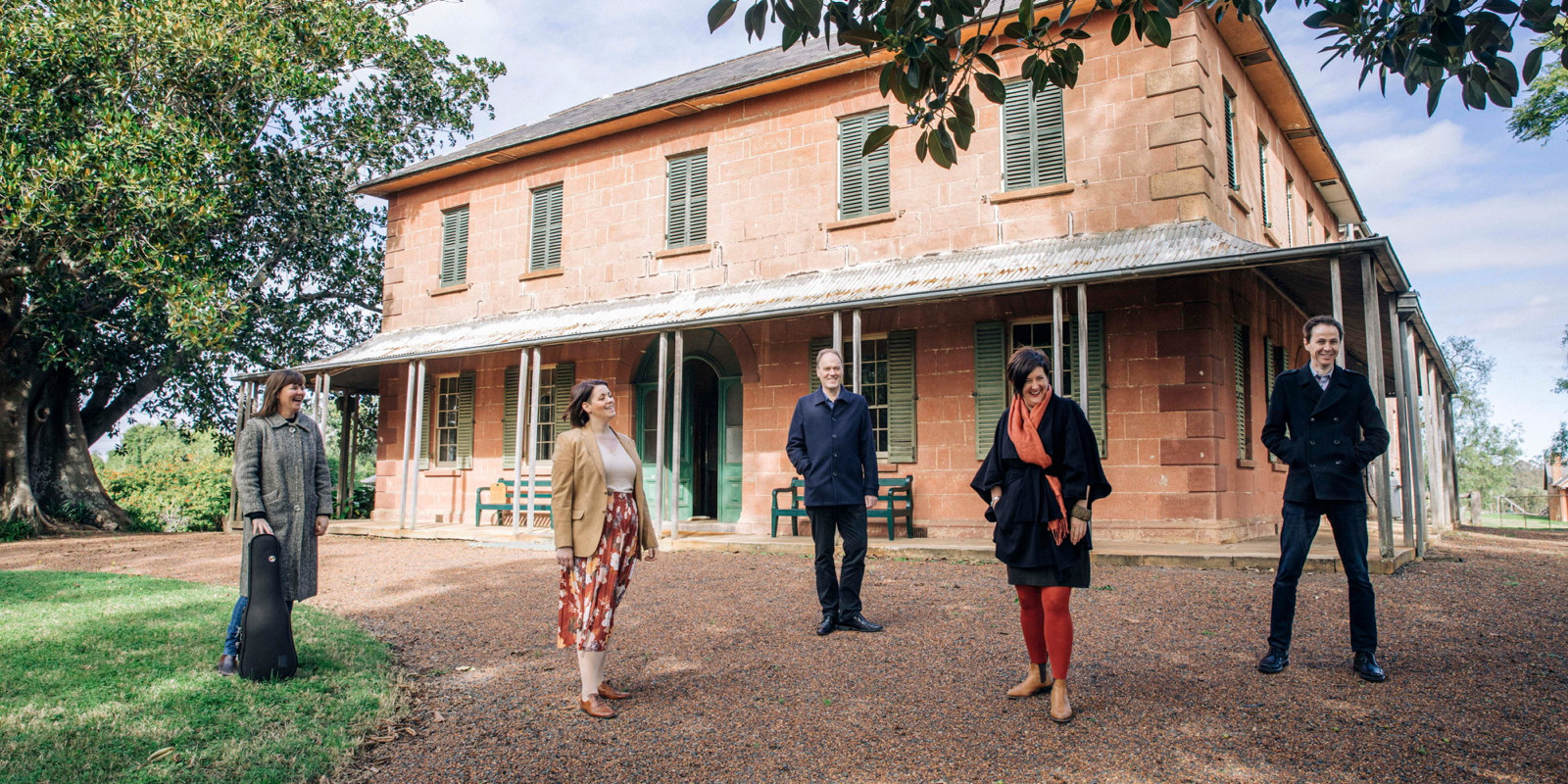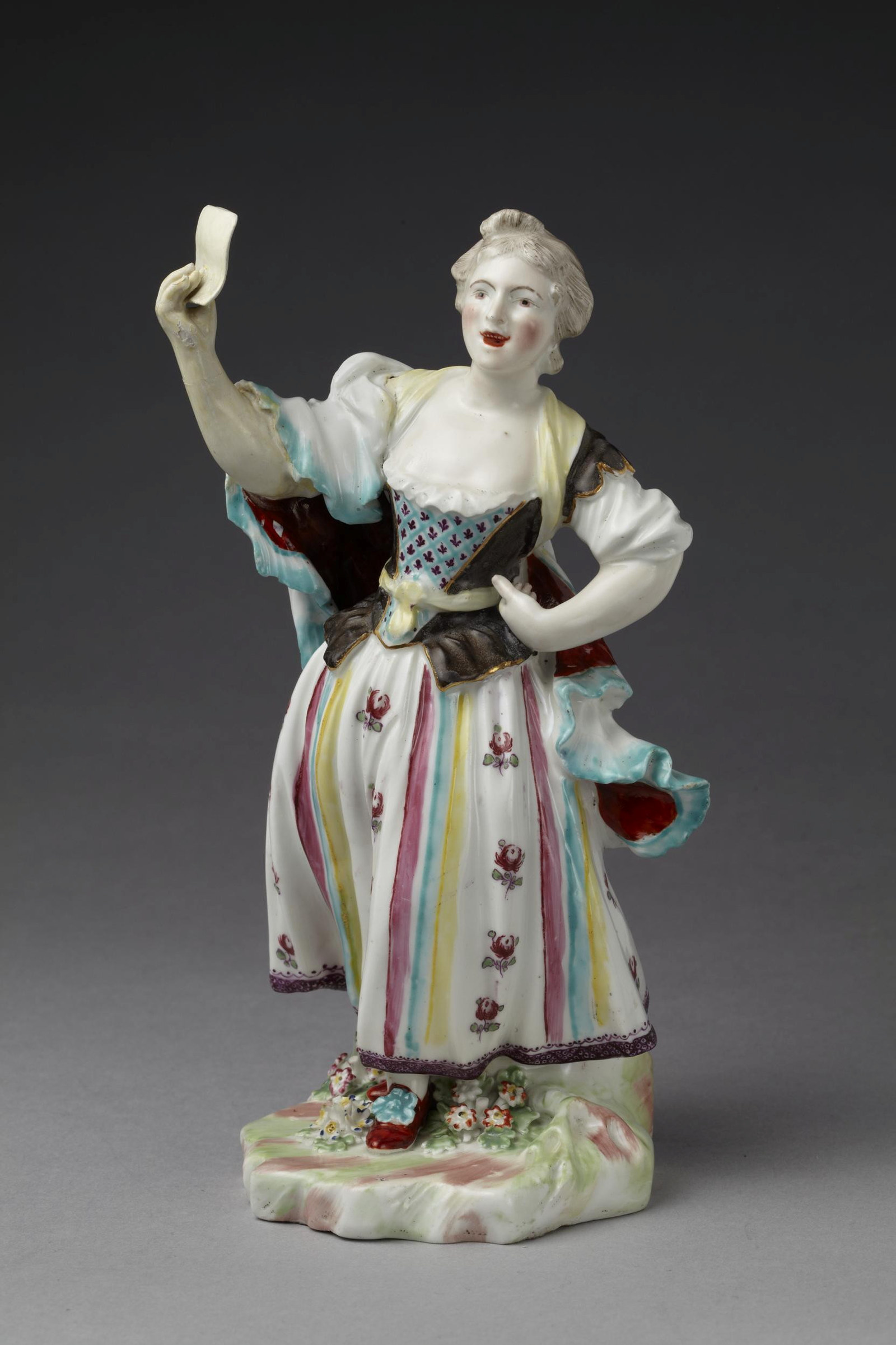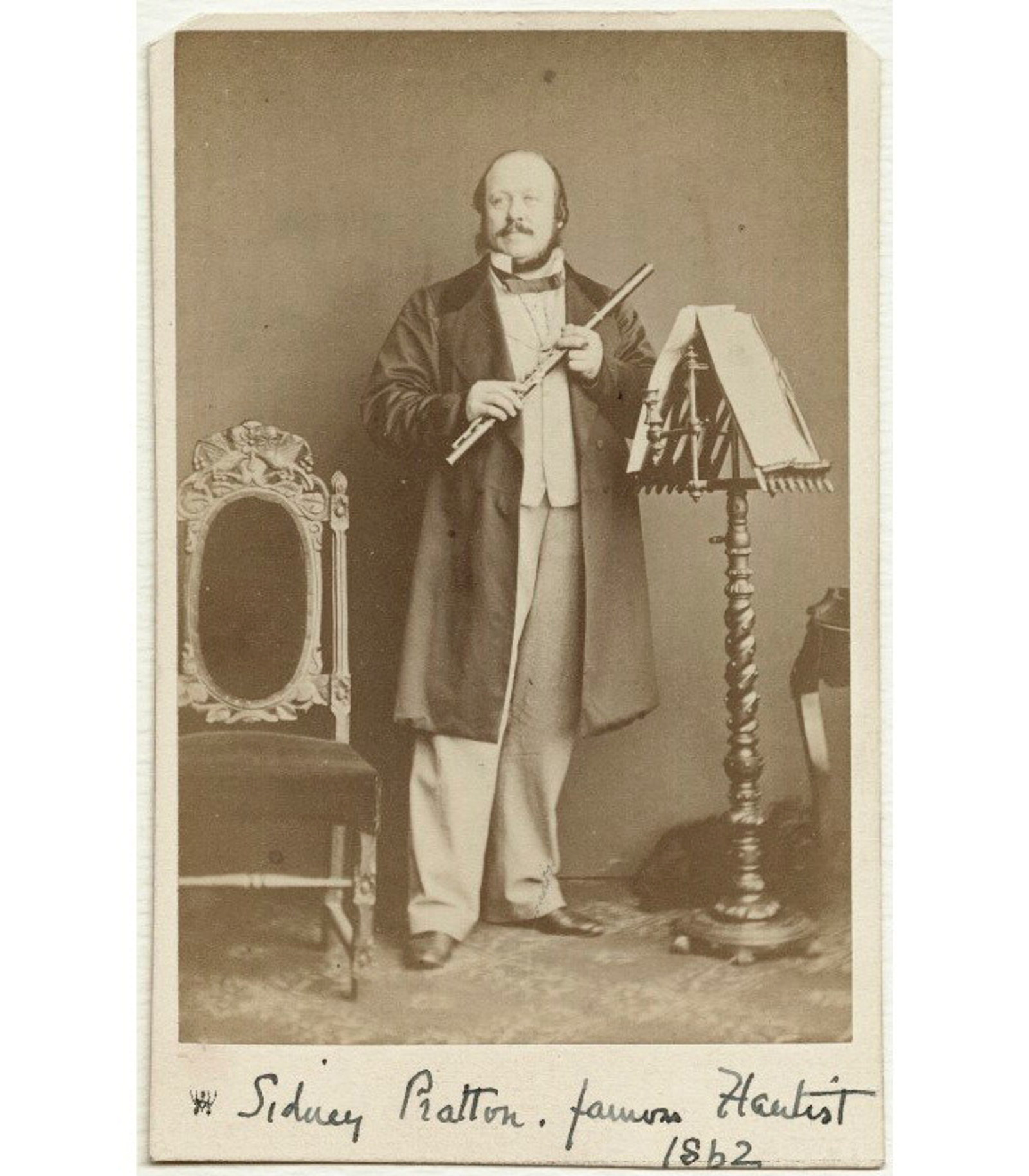'Australian Flowers'
Few of the pieces discovered in the earliest sheet music collections at Rouse Hill Estate could be called Australian compositions. Given that much of the music played in Australia in the 19th century had been imported, one might ask what constituted an ‘Australian’ piece of music?
One of the many musical treasures at Rouse Hill Estate is the ‘Australian Album’ for 1857, published by JR Clarke. It was the third and most accomplished music album dedicated to Australian composition in the 1850s and an expensive production. The pristine copy owned by the Rouse family is bound in red cloth with gilt decorated tooling, and the pages of music and illustrated scenes were engraved in Sydney. Unlike some of the other scores in the collection, this book’s immaculate state suggests that its demanding contents may have been too difficult for its original owner.
The ‘Australian Album’ provides a snapshot of the colonial concert scene with most of the pieces provided by performing musicians who had toured or settled in Australia by the 1850s, and includes French piano virtuoso Edouard Desiree Boulanger, pianist William Stanley, harpist Stephen Marsh, and locally raised pianist and composer Frederic Ellard. We have chosen ‘Australian Flowers, impromptu no. 2 for piano’ from the album by Hungarian virtuoso violinist Miska Hauser for this House Music at Your House contribution. Hauser toured Australia between 1854 and 1858 and two of his publications were published in the ‘Australian album’ along with his portrait. So how ‘Australian’ is Hauser’s composition? These publications certainly reflect an Australian pride in local cultural pursuits and achievement, and we’ll leave the last word to English journalist, Frank Fowler, who touches on this question in his introduction to these musical works:
‘They are all new–all colonial. Here–in this city–they were played, printed, and published. True, some of the composers are foreigners; but still this book is as much an Australian production as a cluster of grapes from the German vineyards at Kissing Point. We can send the work home as a specimen of what we can do out here at Botany Bay – as an index of our education, refinement, art-feeling.' Frank Fowler, preface to the ‘Australian Album’, Sydney: Clarke, 1857.
Watch the performance
Listen to James Doig perform ‘Australian Flowers’ at Vaucluse House, Sydney, and then have a go yourself! There are few clues to the musical tastes of the Wentworth family at Vaucluse House in the 19th century, so we have chosen this piece to help imagine the soundscape at an historic house contemporary with Rouse Hill Estate. We have also provided a link to the film ‘Sweet Noise’ which features James discussing his approach to historical music making at Vaucluse House, Sydney. This is the only available recording of this piece so we’ve provided links to other pieces by Miska Hauser and some of William Stanley’s ‘The Rose Bay Quadrilles’. Why not help us share more versions with the world.
You can find links to the music below and perform and share your own interpretation.
4:25
8:45
Supported by: City of Sydney
More music

House Music at Your House
We delved into the hundreds of popular songs that survive in the collection at Rouse Hill Estate in north-west Sydney to bring you the top 20 hits of the 1840s and 50s – songs played across NSW, Australia and overseas
Published on
Related
Browse all![Owner bound volume of assorted songs, in the collection of Rouse Hill House & Farm, 1850-1864. [music]](https://images.slm.com.au/fotoweb/embed/2023/10/d2e0918e22304feb90e19681abbaafec.jpg)
‘Gii, Gundhi (Hearts and Homes)’
A single song can have a thousand meanings depending on its interpreter. Yuwaalaraay storyteller and musician Nardi Simpson shares her version of a 19th-century parlour song
![Owner bound volume of assorted songs, in the collection of Rouse Hill House & Farm, 1850-1864. [music]](https://images.slm.com.au/fotoweb/embed/2023/10/3810c07fd7fc4a78bcb41f48b8597385.jpg)
‘Hearts and Homes’
Little-known today, composer and music publisher John Blockley (1800-1882) was well-represented in the drawing rooms of Sydney in the 19th century

‘The Ballad Singer’
Romanticised themes of antiquated English traditions continued to feature in songs popular in Australia in the mid-nineteenth century

‘Too Late! Too Late!’
Keeping it in the family - we could say that this comic song is a ‘cousin-by-marriage’ of one of our previous songs